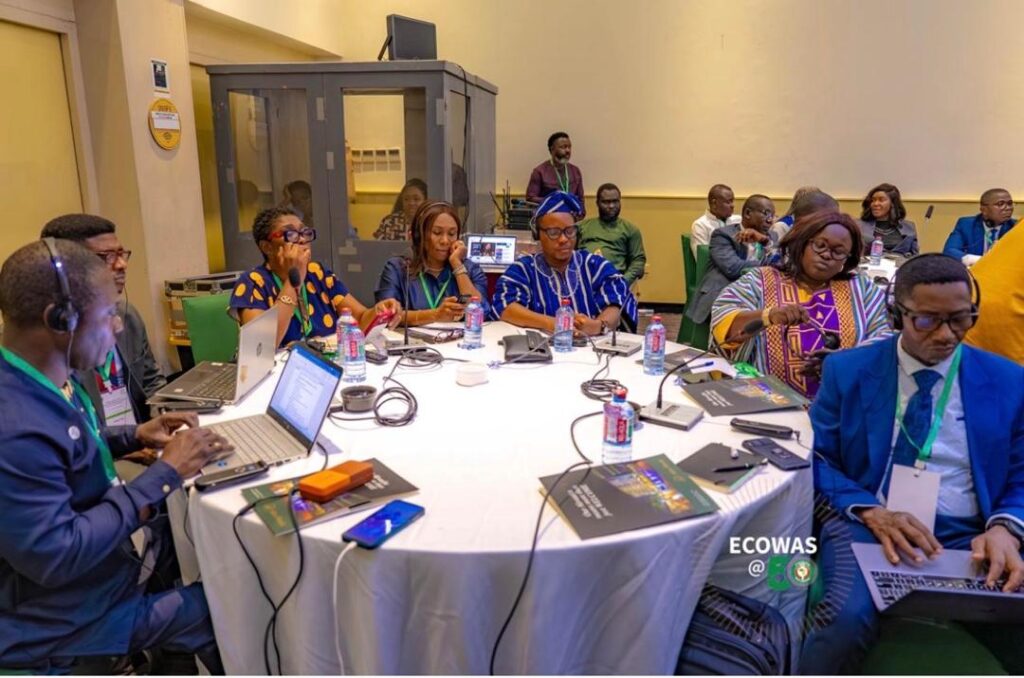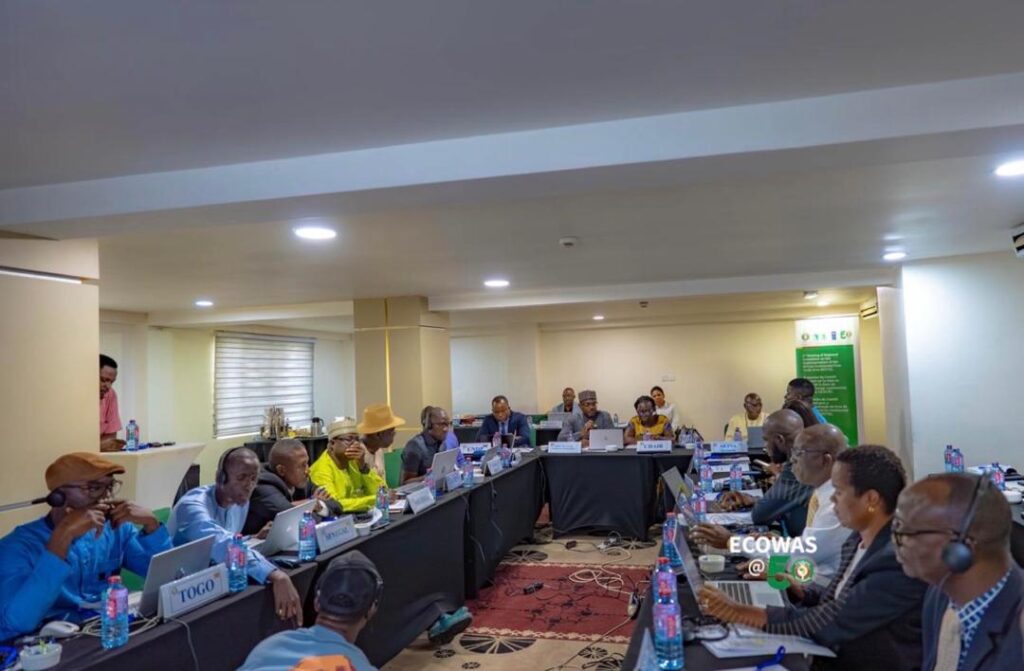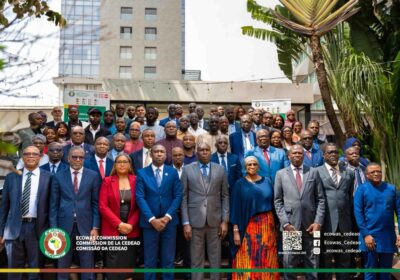ECOWAS–EAC Team Up to Raise Trade Standards on Abidjan–Lagos Corridor.
By Raymond Enoch
The Economic Community of West African States (ECOWAS) has opened a new chapter in inter-regional cooperation by hosting a high-level delegation from the East African Community (EAC) in Accra, Ghana, as both blocs move from peer learning to concrete action to upgrade trade standards and quality systems along West Africa’s busiest route, the Abidjan–Lagos Corridor.

From 18 to 20 November 2025, the ECOWAS Commission and TradeMark Africa, with support from the UK Government through the Foreign, Commonwealth and Development Office (FCDO), are convening the Abidjan–Lagos Corridor Sanitary and Phytosanitary Standards (SPS)/Technical Barriers to Trade (TBT) Forum in Accra. The three-day gathering brings together government officials, private sector representatives and regional institutions from Côte d’Ivoire, Ghana, Togo, Benin, Nigeria and the EAC to tackle quality and standards bottlenecks that undermine trade competitiveness along the corridor.

At the core of the Forum is a clear objective: to design a Corridor SPS/TBT Action Roadmap (2025–2027) that will translate technical discussions into practical reforms at the borders. The roadmap is expected to spell out time-bound measures to improve border coordination, harmonise standards, and strengthen SPS and quality systems across the five ECOWAS member states served by the corridor. By aligning procedures and regulations, ECOWAS and its partners aim to reduce delays, cut compliance costs for traders and make the movement of goods more predictable and efficient.
Participants are also focusing on how to domesticate and operationalise the annexes of the African Continental Free Trade Area (AfCFTA) that relate to eliminating and reducing technical barriers to trade. This includes creating mechanisms for greater transparency, mutual recognition of standards and regulatory cooperation between national authorities and regional bodies. A strong emphasis is being placed on safeguarding human, animal and plant health through robust SPS measures that guarantee food safety and prevent the spread of pests and diseases, while still facilitating trade rather than obstructing it.
The presence of the EAC delegation underlines the Forum’s role as a peer-learning platform. East Africa’s experience in managing trade corridors, streamlining border procedures and applying harmonised SPS and TBT frameworks offers practical lessons for West Africa’s ongoing efforts to modernise its own corridors. By sharing best practices and lessons from EAC’s established corridor systems, both regions are demonstrating how African Regional Economic Communities can support one another to fast-track the AfCFTA’s ambitions.
Speaking in Accra, Dr. Kalilou Sylla, ECOWAS Commissioner for Economic Affairs and Agriculture, captured the strategic weight of the initiative for regional and continental trade. “The Abidjan–Lagos Corridor is the heartbeat of West African trade. Strengthening its standards and SPS systems will make our exports safer, faster to move, and more competitive across Africa and beyond,” he said, underscoring the corridor’s central role in connecting ports, production hubs and consumer markets along the Atlantic coast.
Dr. Sylla further noted that the collaboration with EAC is more than a technical exercise; it is a statement of intent about the future of African integration. “This partnership reflects ECOWAS’s Vision 2050 of a borderless, prosperous region built on trust, standards, and shared prosperity,” he added, pointing to a long-term transformation in how African regions trade with each other.
As the Accra Forum works towards a concrete SPS/TBT Action Roadmap and a set of implementable recommendations, expectations are high that the outcomes will feed directly into reforms on the ground—from more efficient border posts and aligned regulations to higher-quality exports that can meet continental and global market requirements. For traders along the Abidjan–Lagos axis and producers across West Africa and East Africa, the ECOWAS–EAC partnership signals a shift towards a more predictable, safer and integrated trading environment in line with the aspirations of the AfCFTA.








